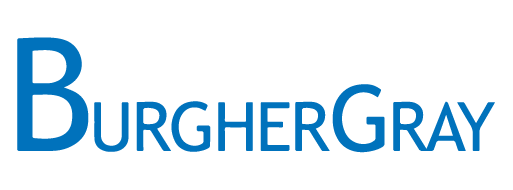Tax Relief for Individuals and Businesses Under the CARES Act

On March 27, 2020, Congress enacted the Coronavirus Aid, Relief, and Economic Security Act or CARES Act (the “Act”) as part of the economic relief package to assist individuals and businesses to overcome the resulting crisis, including the prior Families First Coronavirus Response Act (FFCRA). The CARES Act also enacts the Coronavirus Economic Stabilization Act of 2020 (CESA), which provides $500 billion in loans, loan guarantees, and other investments, which are available to businesses that do not qualify for other assistance under the CARES Act.
This alert summarizes the significant provisions of the CARES Act that affect employers and employees.
Provisions for individuals
- Recovery rebates for individuals. The additional 10% tax on early distributions from IRAs and defined contribution plans (such as 401(k) plans) is waived for distributions made between January 1 and December 31, 2020 by a person who (or whose family) is infected with the Coronavirus or who is economically harmed by the Coronavirus. Penalty free distributions are limited to $100,000, and may, subject to guidelines, be recontributed by the participant to the plan or IRA. The penalty free distributions can be included in the participants gross income over a three year period.
- Special rules for use of retirement funds.
- Temporary waiver of required minimum distribution rules for certain retirement plans and accounts.
- Allowance of partial above the line deduction for charitable contributions. The Act allows a deduction to adjusted gross income of up to $300 of charitable contributions made by an eligible individual during the taxable year.
- Modification of limitations on charitable contributions during 2020. The limits for contributions by individuals and corporations are expanded.
- Exclusion for certain employer payments of student loans. An employee currently may exclude $5,250 from income for benefits from an employer-sponsored educational assistance program. The CARES Act expands the definition of expenses qualifying for the exclusion to include employer payments of student loan debt made prior to January 1, 2021.
Business Provisions
- Employee retention credit for employers subject to closure due to COVID-19. Employers may be eligible for a refundable payroll tax credit for employee retention, if they were fully or partially closed due to an order from a government authority limiting travel, commerce, or group meetings due to COVID-19, or faced a significant decline in receipts related to COVID-19. Where applicable, the tax credits are equal to 50 percent of qualifying wages paid to each employee in a particular quarter. The credit is provided for the first $10,000 in eligible wages of an employee, thus the maximum credit is $5,000 per employee. These tax credits are not allowed where the employer takes advantage of the Paycheck Protection loans.
- Delay of payment of employer payroll taxes. Employers will be able to defer paying the employer portion of certain payroll taxes, including the 6.2% employer portion of Social Security tax, through the end of 2020. All 2020 deferred amounts will be due in two equal installments, the first due at the end of 2021 and second at the end of 2022. Employer who take advantage of the Paycheck Protection Loans are not eligible for the delay in payment of employer payroll taxes.
- Modifications for net operating losses. The 2017 Tax Cuts and Jobs Act (“2017 Tax Law”) limited net operating losses (NOLs) arising after 2017 to 80% of taxable income and eliminated the ability to carry NOLs back to prior tax years. For NOLs arising in tax years beginning before 2021, the CARES Act allows taxpayers to carryback 100% of NOLs to the prior five tax years, effectively delaying for taxpayers the 80% taxable income limitation and carryback prohibition until 2021. This is an opportunity for companies to file amended tax returns for prior years and utilize the NOLs carryback to obtain tax refunds. The CARES Act also temporarily liberalizes the treatment of NOL carryforwards. For tax years beginning before 2021, taxpayers can take an NOL deduction equal to 100% of taxable income (rather than the present 80% limit). For tax years beginning after 2021, taxpayers will be eligible for: (1) a 100% deduction of NOLs arising in tax years before 2018, and (2) a deduction limited to 80% of taxable income for NOLs arising in tax years after 2017. In addition, the Act adds special rules for REITS, life insurance companies, and the Section 965 transition tax.
- Modification of limitation on losses for taxpayers other than corporations. The excess active business limitation on losses for noncorporate taxpayers is suspended by deferring its effective date to tax years beginning after December 31, 2020.
- modification of credit for prior year minimum tax liability of corporations. The 2017 Tax Law repealed the corporate alternative minimum tax (“AMT”) and allowed corporations to claim outstanding AMT credits subject to certain limits for tax years before 2021, at which time any remaining AMT credit could be claimed as fully-refundable. The CARES Act allows corporations to claim 100% of AMT credits in 2019 as fully-refundable and further provides an election to accelerate the refund to 2018.
- Modifications of limitation on business interest. The limitation on the business interest deduction under Code section 163(j) was amended to insert special rules for tax years 2019 and 2020. Under the CARES Act, the adjusted taxable income limitation is increased from 30% to 50%. For partnerships, the 30% of adjusted taxable income limit remains in place for 2019 but is 50% for 2020.
- Technical amendments regarding qualified improvement property. The CARES Act corrects the 2017 Tax Law regarding qualified improvement property. The 2017 Tax Law assigned a 39-year MACRS recovery period to qualified improvement property, instead of the 15-year MACRS recovery period that was intended. This error also had the unintended effect of making qualified improvement property ineligible for bonus depreciation, which only applies to property with a recovery period of 20 years or less. The CARES Act provides that qualified improvement property has a MACRS recovery period of 15 years, effective beginning in 2018. Qualified improvement property is any improvement to an interior portion of a building that is nonresidential real property if the improvement is placed in service after the date the building was first placed in service (but excluding an enlargement of the building, an elevator or escalator, or the internal structural framework of the building).
- Temporary exception from excise tax for alcohol used to produce hand sanitizer.
This alert summarizes the significant tax relief provisions of the CARES Act that affect individuals and businesses. Stay tuned for our separate alert which will summarize and compare different SBA loan programs funded under the CARES Act to assist businesses affected by COVID-19 with payroll, rent, mortgage and other expenses.
Please reach out to Chris, Augusto, or any of your regular BurgherGray contacts if you’d like to discuss how any of the tax relief options discussed above apply to you specifically.
ATTORNEY ADVERTISING. The information contained herein may constitute attorney advertising in certain jurisdictions and, in any event, should not be construed as legal advice with respect to any specific fact or circumstance. The information was prepared and is provided by BurgherGray LLP for general information purposes only and should not be used or relied on as a substitute for competent legal advice from an appropriately licensed attorney at law. Neither the provision by BurgherGray or the use by you of the information presented herein creates any attorney-client relationship between you and BurgherGray LLP. Any prior result included in the information does not guarantee or imply a similar result or outcome in other matters.

1350 Broadway | Suite 1510
New York, NY 10018
T: 646.513.3231 | F: 646.561.9866
info@burghergray.com
This website contains attorney advertising. Prior results do not guarantee a similar outcome | Copyright © 2020. All rights reserved. Terms & Conditions and Privacy Policy


